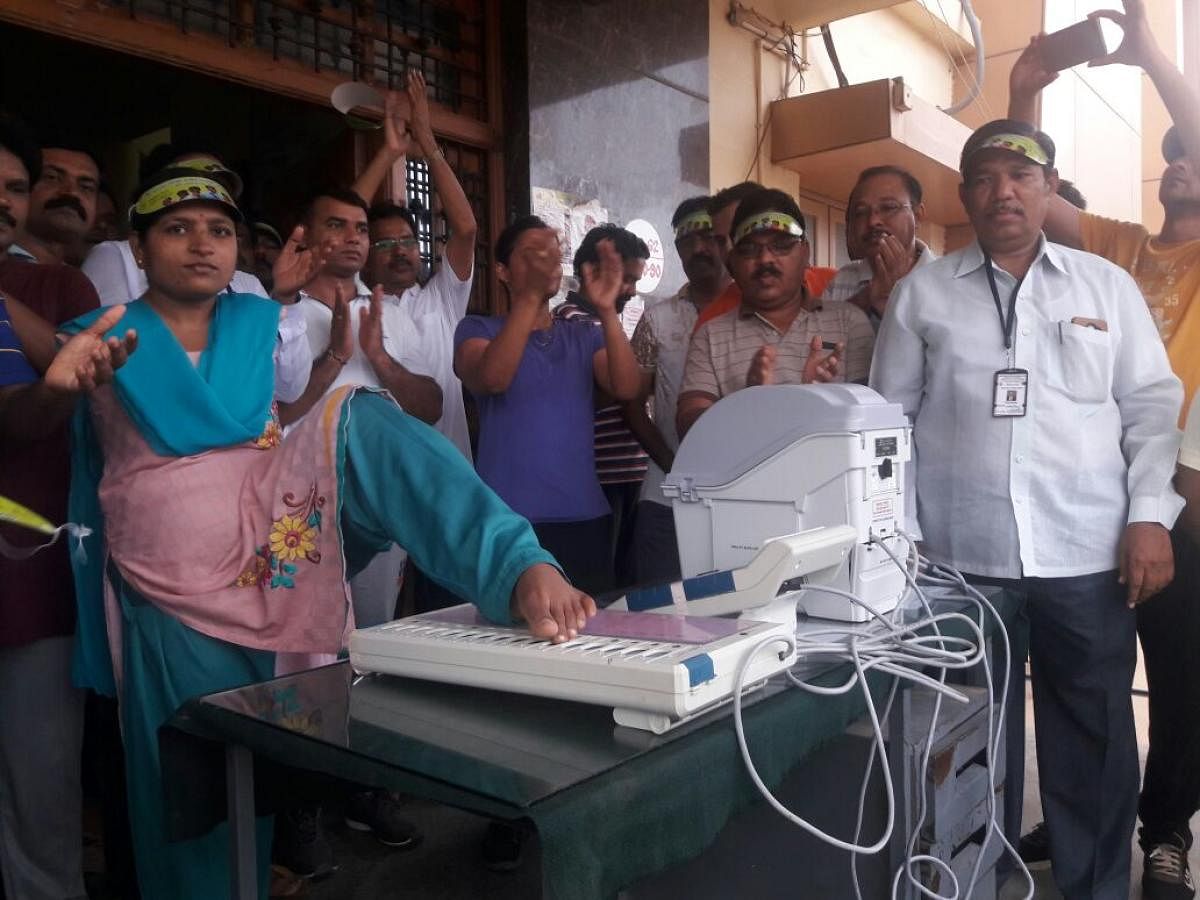On the day of voting, while some differently-abled citizens cannot enter the polling station due to an absence of a ramp, others find themselves helpless due to a lack of an evolved system for the visually challenged.
For the majority of the differently-abled citizens of the state, casting their votes on May 12 is filled with numerous challenges.
The visually challenged, who might have lost their vision later in life and do not know how to read the Braille, the EVM with Braille system are not sufficient. The Election Commission of India began using the Braille system in EVM in Karnataka in 2009.
This makes them dependant on others at the time of casting their vote.
Mahantesh G K, founder of the Samarthanam Trust for the Disabled, says that sound signals can actually help such people at the polling booths.
The government is taking an initiative to include people with disability in the electoral process and according to the Chief Electoral Officer, as many as 180 officers have been appointed for the election duty throughout Karnataka on May 12.
Mahantesh, who is braille literate had no issues while casting his vote as he was able to identify the party.
Sharing some statistics about persons with disability, he said that there are about 32 lakh disabled people in Karnataka, but over 50% of them don’t vote. According to Knowledge, Attitude and Practices (KAP) Baseline Survey–2018, 82.7% of them face difficulties in queues, 36.7% lack information, 8.3% of the disabled don’t vote due to lack of volunteers, and 33.3% face problems due to a lack of wheelchairs and other facilities.
Nalina Kumari—Founder of Saksham Academy and International Wheelchair Tennis player—bound to a wheelchair by Polio said,”I have been voting for the past 20 years, and there were no ramps in a majority of the polling booths. But this time, the authorities have assured that there will be sturdy ramps in all polling stations.”
She expects the future government to ensure accessibility at basic places, such as schools, banks, police stations among other places for all types of disability.
“How would an able person feel if they were to use a building without any doors, that’s how I feel when I go to a place without ramps,” Nalini adds. She strongly feels that authorities should be aware of the disability laws.
Mahantesh feels the disabled and their rights should be given a separate department in the government.
